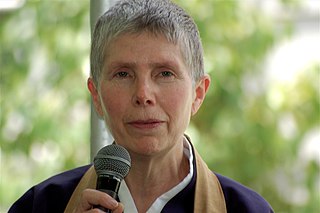A Quote by Paul Valery
A work is never completed except by some accident such as weariness, satisfaction, the need to deliver, or death: for, in relation to who or what is making it, it can only be one stage in a series of inner transformations.
Related Quotes
In the eyes of those lovers of perfection, a work is never finished - a word that for them has no sense - but abandoned; and this abandonment, whether to the flames or to the public (and which is the result of weariness or an obligation to deliver) is a kind of an accident to them, like the breaking off of a reflection, which fatigue, irritation, or something similar has made worthless.
All revolutionary advances in science may consist less of sudden and dramatic revelations than a series of transformations, of which the revolutionary significance may not be seen (except afterwards, by historians) until the last great step. In many cases the full potentiality and force of a most radical step in such a sequence of transformations may not even be manifest to its author.
Yet housekeeping actually offers more opportunities for savoring achievement than almost any other work I can think of. Each of its regular routines brings satisfaction when it is completed. These routines echo the rhythm of life, and the housekeeping rhythm is the rhythm of the body. You get satisfaction not only from the sense of order, cleanliness, freshness, peace and plenty restored, but from the knowledge that you yourself and those you care about are going to enjoy these benefits.
Therefore 'Christ hath tasted death for every man:' not only for all kinds of men, as some vainly talk, but for every one, of all kinds; the benefit of whose offering is not only extended to such, who have the distinct outward knowledge of his death and sufferings, as the same is declared in the scriptures, but even unto those who are necessarily excluded from the benefit of this knowledge by some inevitable accident.
Abolish slavery tomorrow, and not a sentence or syllable of the Constitution need be altered. It was purposely so framed as to give no claim, no sanction to the claim, of property in man. If in its origin slavery had any relation to the government, it was only as the scaffolding to the magnificent structure, to be removed as soon as the building was completed.
One of the changes I'm driving within Nokia is to adopt what we call 'the challenger mindset.' Let's understand that we have to fight, we have to fight our way through the difficulties, we have to listen to consumers, we have to both deliver what they need and also have some creativity and insight and deliver what the don't yet know they need.
Except that it’s not really 'now' that the inner critic attacks. It’s a few seconds or a minute ago. The inner critic depends upon comparison, and when we are fully aware in the present moment, when there is no past or future in our mind’s awareness, there is nothing to compare. There is only what is, as it is. The inner critic disappears.






































